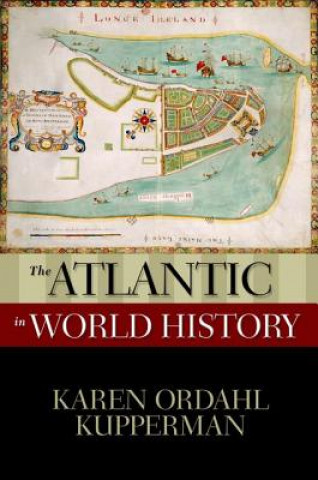
Consegna
Guida all'acquisto





Non ti piace? Non importa! Puoi restituircelo entro 30 giorni
 Buono sconto
Di qualsiasi valore
Buono sconto
Di qualsiasi valore
Non puoi sbagliarti con un buono regalo. Con il buono regalo, il destinatario può scegliere qualsiasi prodotto della nostra offerta.
Atlantic in World History
 Inglese
Inglese
 117 b
117 b
30 giorni per il reso
Potrebbe interessarti anche


As the Atlantic Ocean was transformed from a terrifying barrier into a highway uniting four continents, the lives of people all around the ocean were transformed. After 1492 merchants and political leaders around the Atlantic refocused their attention from trade highways in their interiors to the coasts. Those who emigrated, willingly or unwillingly, had their lives changed completely, but many others became involved in new trades and industries that necessitated consolidation of populations. American gold and silver contributed to the emergence of nation-states. New foods enriched diets all over the world. American foods such as fish, cassava, maize, tomatoes, beans, and cacao fed burgeoning populations. Sugar grown around the Atlantic transformed tastes everywhere. Tobacco was the first great consumer craze. Furs provided the raw material for fashionable broad hats. Chains of commodity exchange linked the Atlantic to the Pacific; they also linked Americans to the Mediterranean and the goods of the Middle East. Creation of Atlantic economies required organization of labor and trade on a scale previously unknown. Generations of Europeans who signed up for servitude for a number of years in order to pay their passage over were gradually supplanted by enslaved Africans, millions of whom were imported into slavery. Wars, fueled by the need for ever more slaves, spread throughout West and Central Africa. The African end of the slave trade produced powerful rulers and great confederations in Africa. Consolidation of displaced tribal groups and remnants of populations depleted by epidemic disease led to the emergence of the Six Nations of the Iroquois League in northern North America, and the Creeks, Cherokees, and others in the south. Those who made a choice to travel across the Atlantic did so for economic advancement, but many also were influenced by religious concerns. Conflict between Roman Catholics and Protestants in Europe, and the power of political leaders to force conformity, caused many to feel that their right to worship was under threat. They were willing to accept servitude to make emigration possible, in order to protect their religious lives. Attempting to create and control vast networks of settlement and trade enhanced the rise of nation-states in Europe and contributed to the growth of national identities. The wars of independence in the late eighteenth and nineteenth centuries changed the nature of relationships, but did not end them. Abolitionism serves as a vivid example of the collision of religious, philosophical, and economic realities and the ways in which the Atlantic context posed new possibilities and new answers.
Informazioni sul libro
 Inglese
Inglese
Categorie


 Contatto
Contatto Come acquistare
Come acquistare























